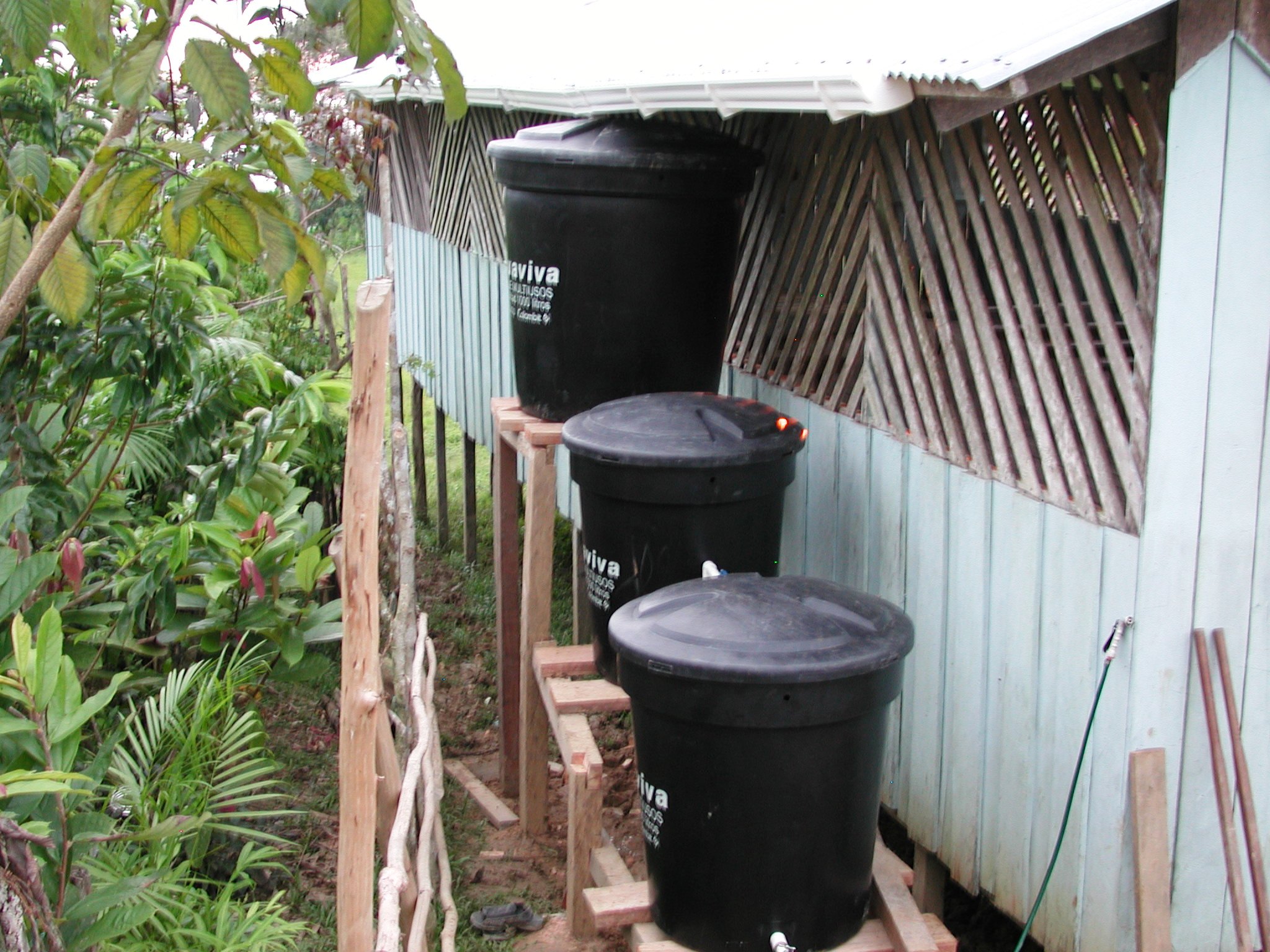FAYETTEVILLE, Ark. — A University of Arkansas researcher used his engineering expertise to provide clean water to an Amazon village this summer and will help build clean water systems in Indonesia this fall. The latter project is part of a large redevelopment of areas that were destroyed by last year’s tsunami.
Thomas Soerens, associate professor of civil engineering, traveled to Zaragoza, Colombia, earlier this summer to build a modified version of a simple water-filtration system designed by students in his spring 2005 senior-level design class.
“I told my students what it was like down there,” Soerens said, “and asked them to come up with a system that people could use and maintain.”
With scrap materials at the Engineering Research Center, the students devised a system that included plastic plumbing pipes, large plastic tanks and two kinds of filters. The system collected rainwater from the roof of the research center and funneled it into one tank on top of a wooden platform. Water from that tank flowed through plastic pipes to filters inside the two other tanks. The students built and tested a slow-sand filter and a biosand filter.
Both systems removed bacteria from the water, but the biosand system, a filter that keeps sand wet and forms a biologically active layer to help treat bacteria, worked better and produced water clean enough to drink. After the end of the semester, Soerens observed the system further and noticed that it filtered water slowly, so he modified it and added an extra tank for storing the water after it had been processed by a filter tank.
With help from several local people, Soerens built the filtration system at a church in Zaragoza, which is 500 miles from the nearest highway and accessible by traveling several hours on the Amazon River. The indigenous people who live there and in many other small villages around Leticia, Colombia, do not have access to clean water. They rely on rainwater and water from ponds and the Amazon River for drinking and bathing. Parasites and bacteria in the untreated water have caused illness and death.
Soerens said all residents of the village may use the system to obtain clean water. A local man will monitor and maintain the system and, with money from a private foundation, construct more systems at local schools.
During his visit, Soerens met the mayor of Leticia and governor of the Colombian state of Amazonas. Both officials pledged material support for future projects.
Soerens wants to coordinate the construction of the filtration systems with a program of hygiene education. He said most of the villagers do not understand the connection between consumption and use of bacteria-laden water and illness or death.
For billions of people in underdeveloped countries of South America, Asia and Africa, clean water is precious resource. The World Health Organization reports that parasites, bacteria and chemicals in unsafe water kill 3.4 million people, mostly children, each year. The International Food Policy Research Institute reports that 1.1 billion people around the globe lack access to an improved water source — a pipe, well or protected spring — and millions of people, mostly women, walk miles to collect water from a river, spring or well.
These facts disturb Soerens, and he is pleased that he possesses knowledge that can improve lives in a practical way. Many years ago, before he finished college, he worked for a relief organization at an Afghan refugee camp in Pakistan. While working at the camp, Soerens had a moment of clarity about his future.
“I realized I didn’t have any specific skills,” he said. “So I decided to go be an engineer.”
He returned to the United States and earned a bachelor’s degree in civil engineering. After graduating, he went to the Republic of Maldives, an island nation in the Indian Ocean, and worked as a water and sanitation engineer for two years. He returned to the United States again and earned advanced degrees in civil engineering at the University of Oklahoma. He also worked as an environmental engineer for two private companies in Oklahoma.
The number of water and sanitation projects in developing countries has risen, Soerens said. He recently attended the annual summit of the National Ground Water Association in San Antonio, where the most popular session was “groundwater in developing countries.” In October, Soerens will travel to Indonesia to participate in a large community redevelopment project to rebuild areas that were destroyed by the tsunami that struck the island last winter. Soerens will direct the water and sanitation component of the project.
Rainwater catchment, the process of gathering and filtering rainwater for consumption, has been used in some areas but is underutilized in general, Soerens said. If his system works at an optimum level, Soerens wants to share it with relief agencies working in undeveloped countries.
“Rainwater rather than river water will take you from grade F water to grade C or C-,” Soerens said. “But rainwater with filtration will take you to B+ or maybe even A-. So I’d like to see systems like mine used more.”
To see photographs of the water-filtration system and Soerens’ trip to Colombia, visit http://www.cveg.uark.edu/faculty/SoerensThomas/Amazon/Amazonwaterw.htm.
Contacts
,
